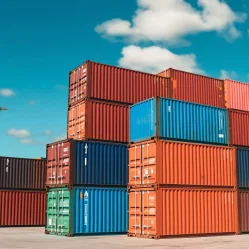What is shipping used for?
2024-01-26
Shipping serves as the crucial process of transporting goods or commodities from one location to another, and it plays a fundamental role in various aspects of commerce, trade, and everyday life. Here are several key purposes and applications of shipping:
1. Commerce and Trade:
- International Trade: Shipping is a primary means of transporting goods between countries. Cargo ships facilitate the movement of raw materials, finished products, and commodities on a global scale, contributing to international trade.
2. Supply Chain Logistics:
- Distribution: Shipping is an integral part of supply chain logistics, helping move products from manufacturers to distributors, retailers, and ultimately to consumers.
- Warehousing: Goods are often shipped to warehouses or distribution centers before being distributed to retail locations. Shipping ensures a smooth flow of products within the supply chain.
3. E-commerce:
- Online Retail: With the rise of e-commerce, shipping has become essential for delivering products ordered online directly to consumers' doorsteps. Courier services and postal systems play a significant role in this context.
4. Manufacturing and Industry:
- Raw Material Transportation: Raw materials needed for manufacturing processes are often transported via ships, ensuring a steady supply to manufacturing facilities.
- Export and Import of Goods: Finished products are shipped to markets worldwide, and manufacturers rely on shipping to import essential components and materials.
5. Energy Resources:
- Oil and Gas Transportation: Shipping is a crucial mode of transportation for oil and gas products. Tankers transport crude oil and refined petroleum products across oceans to meet global energy demands.
6. Agriculture and Livestock:
- Export of Agricultural Products: Agricultural products, such as grains, fruits, and livestock, are transported via ships to reach international markets.
- Livestock Transportation: Livestock, such as cattle and sheep, are sometimes shipped to other regions for breeding or consumption.
7. Construction Materials:
- Bulk Cargo: Shipping is used to transport bulk materials such as sand, gravel, and cement, which are vital for construction projects.
8. Humanitarian Aid:
- Emergency Relief: In times of natural disasters or emergencies, shipping plays a critical role in delivering humanitarian aid, including food, medical supplies, and other essentials to affected regions.
9. Tourism and Passenger Transportation:
- Cruise Ships: Shipping is not only for cargo; it also serves passenger transportation. Cruise ships and ferries transport passengers to various destinations, contributing to the tourism industry.
10. Environmental Monitoring:
- Research Vessels: Shipping is used for scientific purposes, such as environmental research and monitoring. Research vessels are deployed to study oceanography, marine life, and climate-related phenomena.
Shipping, whether by sea, air, or land, is a vital component of the global economy, enabling the movement of goods and resources across vast distances. It plays a central role in supporting trade, industry, and the interconnectedness of economies worldwide.



